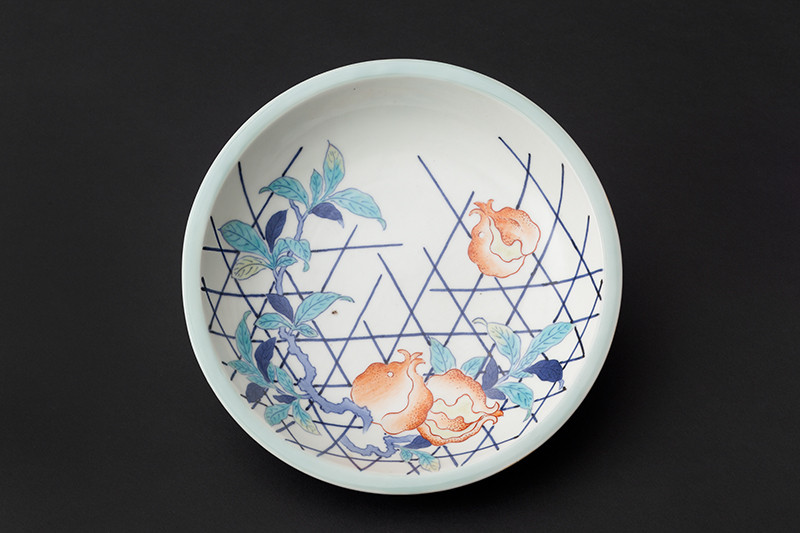
This high-based bowl from Arita production on the island of Kyūshū combines geometric and botanical decoration. The pomegranate motif is a symbol of longevity and abundance; the great number of seeds in the pomegranate is believed to promise wealth and many offspring. In Europe, the (originally Chinese) pomegranate motif transformed into the popular blue onion pattern for which Meissen porcelain is known. The geometric motif in the background outlines a bamboo fence. The asymmetric decoration is typical of porcelain from Ōkawachi, northeast of Arita (today’s Buzen Prefecture), which was produced for the influential Nabeshima family. It was therefore called Nabeshima or Imari (after the city of Imari in the west of today’s Saga Prefecture, from where it was exported to other parts of Japan). The reverse, which is painted in underglaze cobalt blue, bears three groups of six pearls with ribbons in each, as is typical for such bowls.
